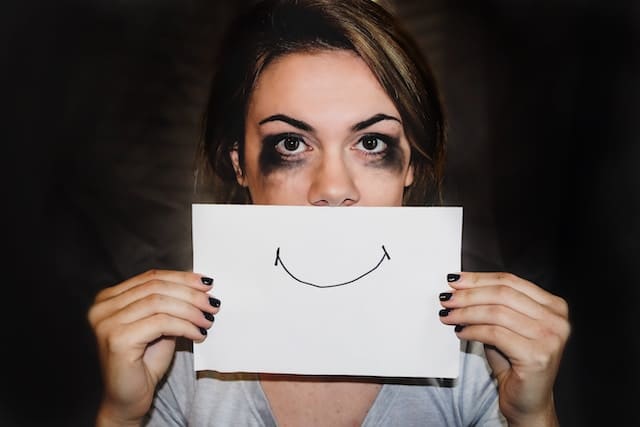
Mental ill health and addiction often go hand in hand. For some individuals, the use of drugs and alcohol is a way of coping with trauma, depression, or anxiety. This is known as self-medication. But conversely, problems with addiction can lead to mental health issues in those who have previously never experienced them before.
When a person has a problem with substance abuse while also experiencing mental ill health, this is known as a co-occurring disorder or a dual diagnosis. If you are on the path to recovery from addiction, your mental health can suffer. Whether you are recovering at home in the presence of loved ones, undergoing intensive outpatient treatment, or residing in a rehabilitation clinic, looking after your mental well-being is just as important as beating your addiction.
It is highly commendable that you are taking steps to improve your life and cast off the shadow of substance abuse. But when you are going through withdrawal and dealing with the consequences of your actions, it is common for people to experience symptoms of depression, anxiety, suicidal thoughts, and relationship problems. It’s essential you address your mental health concurrently in order to achieve a full recovery.
To help you on the path to physical and mental wellness, here are some tips for looking after your mental health throughout recovery.
Learn to recognize a dual diagnosis
You can’t treat mental health issues if you are not even aware there is a problem, so the first step is learning to recognize a dual diagnosis. This can be difficult to achieve since often the symptoms of substance addiction and withdrawal can mirror those of certain mental illnesses. For example, you might be experiencing periods of intense depression, or bouts of severe anxiety. Maybe you have withdrawn from loved ones or are using harmful substances as a way of suppressing unpleasant thoughts and feelings. To make things harder, denial is a common phenomenon in both addiction and mental health issues, so it can take some real introspection and honesty to really get to the root of the problem. You may be taking steps to recover from your addiction, but it’s only when you define your relationship with your mental health that you can truly begin to recover.
Talk to people
If you have close friends or relatives in your life, you can always rely on them to be a support network. It may be that your personal relationships have suffered as a result of your addiction, but making reparations is a big part of the recovery process, and can lead to healing on all sides. Let your loved ones know how you are feeling. At the very least, sharing your thoughts will enable you to lighten your load and get your problems off your chest to make yourself feel better. But your friends and family may also be able to provide you with practical solutions and advice to dealing with your mental health problems. Mental ill health is more common than many people realize, and there is a good chance that people in your support network have gone through similar struggles.
It may be that you don’t have people in your life you feel you can talk to, or worry that they will not understand your addiction. If so, it will almost certainly help to speak to others who have been in your situation. There are countless support groups and meetings for former addicts or those going through recovery. By attending, you will be able to share your story and listen to the stories of people who were once in the same boat.
Speaking to professionals is also an important part of recovery. Many people will choose to undergo treatment while remaining at home, but you also have the option of inpatient treatment. Not only does this give you access to qualified professionals who can help with your treatment, but it also puts you close to others in your situation. You will have both other addicts and qualified doctors, nurses, and therapists to talk to about your treatment and more. By choosing to get treatment in a rehab facility, you can remove many of the temptations and difficulties that come with trying to recover at home without some of the same support.
Exercise
Physical activity is one of the best ways to give your mental health an instant boost. Withdrawal can sap your energy and make you feel rundown, so it’s understandable that going to the gym is probably the last thing on your mind. But a short burst of moderate-intensity exercise can get your endorphins flowing and provide instant relief. It will make you feel happier and more energized, and your mental health will skyrocket as a result. Try to get into a regular routine of activity every single day. This could be as simple as strapping on your trainers and going for a run or walk in nature, or it could be something more exciting like mountain biking or climbing. Find an activity you enjoy and it will seem like less of a chore whenever you need to get your sweat on.
Eat healthily
What you put into your body has a huge impact on the way you think and feel. A nutritious diet will promote recovery while also making you feel good about yourself and improving your mental well-being drastically. Although it can often feel easier to eat fast food or heat a microwavable meal, these items are full of salt and unhealthy fats that will only leave you feeling sluggish and fatigued. Eating well doesn’t have to be expensive or time-consuming. As long as you fill your meals with a good balance of fruits and vegetables, carbohydrates, protein, and healthy fats, you will feel the benefit right away. There are plenty of cheap and easy recipes online that you can use for inspiration.
Occupy your mind
Keeping your mind busy is a great way to keep you focused and motivated towards your recovery. Mental stimulation will prevent you from fixating on your withdrawal symptoms and will provide a welcome distraction. Find an activity that interests you and requires concentration and thought. Reading is a great option, as there are countless books to suit all preferences and tastes. Devour trashy fiction, read biographies of your favorite celebrities, or work your way through the classics. If literature isn’t your thing, you could turn to video games, films, music, knitting, or jigsaw puzzles. The options are endless.
Write
Writing your thoughts and feelings down in a journal is a great way to offset mental energy and articulate everything you are going through. Invest in a notebook or journal and make a habit of writing something down every single day. It doesn’t have to be perfect or grammatically correct, as no one else has to read it. The mere act of putting words onto paper can be enough to provide relief and make you feel happier.
Go offline
The internet, although a valuable tool, is one of the most harmful triggers for bad mental health. Social media can make us feel inadequate to our peers, while news sites are full of gloomy headlines that cast the world in a bad light. Make an effort to put down your phone and spend time offline. You will instantly notice how much lighter and freer you feel, as well as having more hours in the day to enjoy. Use this extra time on productive activities, like socializing, exercising, and stimulating your mind. If you find it hard to detach from the digital world, try taking small steps. Use timers to limit your social media usage to an hour a day, shortening this period as you go on.
Meditate
Meditation often gets a reputation as something for spiritual or religious people, but it doesn’t need to have these undertones. Anyone can benefit from mindfulness meditation, regardless of their beliefs or background. Mindfulness is all about being present and aware of your mind and body. It can be immensely calming and a great way to get a handle on difficult thoughts and emotions. You don’t need to be an expert in order to get started or have any specialist equipment. All it requires is a quiet place to sit and breathe for a few minutes. There are plenty of excellent resources online that can coach you through a basic mindfulness meditation session. It might take a little bit of time before you can shut out your thoughts and really focus., but it is guaranteed to make you feel calmer and more relaxed.
Set goals
Setting goals is an excellent way to keep you motivated and focused throughout your recovery. As well as beating your addiction, what is it you want to achieve by ridding yourself of dependency? Write down your short-term, medium-term, and long-term goals, and make a plan for how you will get there. For example, your short-term goals might involve specific actions like starting an exercise regime or connecting with friends and family. Longer-term goals might be to establish a healthy routine, run a marathon, or excel in the workplace. Your goals will depend on your unique set of circumstances, but they should align with your values and provide a positive effect on your life.
Following these tips will help to promote your recovery while making you healthier and happier at the same time. Improving your mental health is not something that simply happens overnight. It requires baby steps and patience. Mental wellness is an ongoing process rather than a quick fix, so don’t expect an instant cure. But with good habits and willpower, you can turn your recovery into something positive and begin life afresh.



